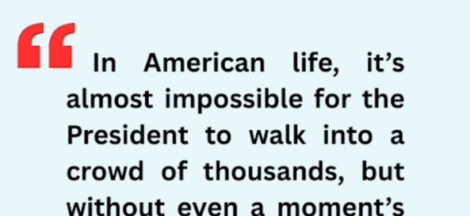The renowned Islamic Scholar Wahiduddin Khan Khan has been conferred with Padma Vibhushan, India’s second highest civilian award, for his contribution to spirituality. The 96-year–old Maulana is widely respected for his commentary of the Quran, besides his enlightened views on much debated subjects such as women’s rights on Islam, instant triple talaq, jehad, terrorism and family planning. Wahiduddin Khan has not confined himself to Urdu often being read in English and Hindi.
A little later, Wahiduddin Khan spoke against ban on Salman Rushdie’s Satanic Verses, arguing that no Muslim could agree with Rushdie but that did not take away the author’s right to write. The Satanic Verses was a work of fiction, he noted, hence unworthy of opposition stemming from religion.
Wahiduddin Khan’s intermixing of faith and politics did not endear him to many. When he formed a Vajpayee Himayat Community in 2004, his proximity with BJP came out in public domain. Wahiduddin Khan, however, remained unflustered and concentrated his energies on the centre of Peace and Spirituality, translating the Quran and filing booklets on different facets of Islam.
Born in Azamgarh in 1925, the Maulana was educated in traditional seminary. From his early years, he showed a voracious aptitude for modern knowledge, spending entire days in the library. As a result he became well versed in both classical Islamic learning and modern discipline. His extensive research led him to conclude that the need of the hour was to present Islamic teaching in style and language of the post scientific era.
Having lost his father, Fariduddin Khan at early age in 1929, he was brought up by his mother Zaibunnisa Khatoon and his uncle Sufi Abdul Hamid Khan, arranged for his education. He comments that becoming an orphan very early in life taught him that, to succeed in life, you have to take such situation as challenges and not as problems.
Since his family was involved in India’s freedom struggle from the very outset, as a very young man he became a staunch nationalist with Gandhian values in the period prior to India gaining its independence in 1947 and he continues to be such till today.
From childhood he unconsciously lived in nature. When during his days at the seminary he learnt that Quran teaches man to observe and reflect on nature – God’s creation; he consciously began to imbibe this principle in his life. Henceforth, observation and reflection became seeds that were to develop in him a scientific and analytical bent of mind, which effectively applies till today in both religious and secular fields.
His brother wanted him to join the family business, but realizing that, without studying English and modern science, his education would be incomplete, the young Khan immersed himself in learning English and then went on to study innumerable books on science and knowledge, he would visit the library early in morning and leave only when requested to do so by the librarian at the closing time. His quest for knowledge can be gauged by the fact that, even today he constantly questions all visitors coming to him, so that he may gain fresh knowledge from interacting with them.
In 1992, when atmosphere was so highly charged throughout India due to Babri Masjid incident, he felt the necessity to convince people of need to restore peace and amity between two communities, so that the country might once again tread the path of progress. To fulfill this end, he went on a 15-day Yatra (peace march) through Maharashtra along with Acharya Muni Sushil Kumar and Swami Chidanand, addressing large group of people at 35 different places on the way from Mumbai to Nagpur. This Shanti Yatra contributed greatly to the return of peace in the country. (IPA Service)


 India-China Troops Disengagement In Ladakh Is A Sort Of Armistice
India-China Troops Disengagement In Ladakh Is A Sort Of Armistice 